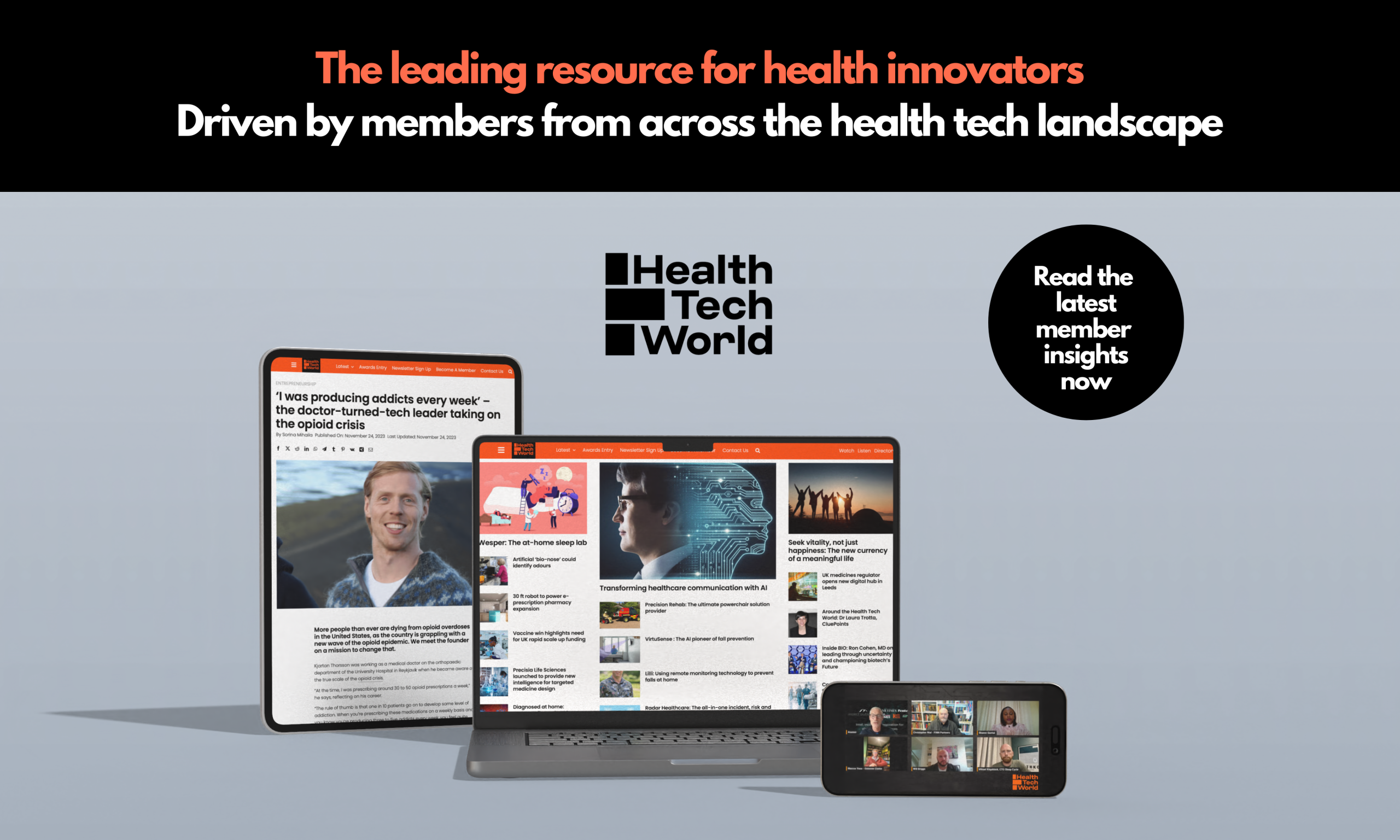Round up: Grant to expand AI-powered diagnostic service into oncology and more

Health Tech World explores the latest business developments in the world of health technology.
Philips and Masimo to advance access to patient monitoring measurement tech
Royal Philips and Masimo have renewed their multi-year strategic collaboration. The collaboration will now be working to accelerate the development and delivery of next-generation patient monitoring solutions.
The companies state that the partnership is a joint effort to integrate Masimo’s advanced monitoring technologies – including SET pulse oximetry, Radius PPG, and a range of sensor technology – into Philips’ multi-parameter patient monitoring platforms.
The integration will support clinicians with data and insights across bedside monitors, central stations and wearable solutions, while giving them the flexibility to use their preferred measurement technologies within a single, unified system.
By embedding these capabilities into Philips’ monitoring ecosystem, the collaboration aims to reduce complexity, enhance interoperability and deliver streamlined tools that support timely decision-making and continuity of care.
Philips and Masimo also plan to collaborate on the development and co-promotion of next-generation monitoring solutions that reflect emerging clinical needs and evolving market demands such as the need for greater patient mobility.
These efforts are focused on advancing smart, connected care and expanding access to innovative technologies, including AI algorithms, that have the potential to improve patient care over time.
Grant to expand AI-powered diagnostic service into oncology
Health tech company IMVARIA has been awarded a Phase I Small Business Innovation Research (SBIR) grant from the National Institutes of Health (NIH).
The funding will support IMVARIA’s development of a new test for more accurate malignancy assessment in chest CTs, building on the success of Fibresolve, its FDA-authorised AI adjunctive diagnostic service in lung disease.
The work extends IMVARIA’s AI Platform and algorithms into oncology.
IMVARIA says it has already presented preliminary results at the ATS 2025 conference, and that the next stage of development is to advance this early work to regulatory-grade performance, so it can then move into clinical studies and, ultimately, into routine clinical use.
“Our long-term goal at IMVARIA is to enable better non-invasive diagnoses and to generate new insights into how patients are assessed and managed across a range of conditions,” said Michael Muelly, co-founder and CTO of IMVARIA.
“This NIH SBIR grant is a meaningful step forward, underscoring recognition that AI can go beyond administrative and backend applications and play a direct, positive role in advancing patient care.”
Collaboration to advance diagnostics for prosthetic joint infections
Biotia, a health technology company leveraging next-generation sequencing (NGS) and AI, and Hospital for Special Surgery (HSS), have entered a collaboration to advance diagnostics for detecting prosthetic joint infection.
The collaboration unites Biotia’s cutting-edge sequencing platform and proprietary bioinformatics software with the clinical and surgical expertise of HSS physician-scientists from Adult Reconstruction and Joint Replacement, Infectious Disease, Pathology and Research.
“At HSS, we are constantly seeking innovative ways to improve care and enhance the lives of patients worldwide,” said Vijay Nair, managing director at HSS.
“Through this collaboration, we’re uniting a cross-disciplinary team across academia and industry to look at a complex clinical challenge from multiple angles.
“By combining our deep clinical expertise with Biotia’s diagnostic platform, our hope is to address a pressing need in the diagnosis and management of prosthetic joint infection so patients can get back to doing what they love following joint replacement surgery.”
Collaboration to expand remote cardiac monitoring
The parent brand to FSA Store and HSA Store, Health-E Commerce, is embarking on a new collaboration with Biotricity, a medical technology company.
Through this arrangement, Biotricity’s continuous 24/7 wearable cardiac monitoring solution, Bioheart, will now be available to more than 70 million consumers who are enrolled in FSAs and HSAs.
Bioheart monitors heart health in a wearable solution that continuously tracks the heart when worn, capturing data from three different angles to provide a complete 360° view.
The device monitors the heart during all levels of activity, including exercise or sleep. Users can also request to have a certified healthcare professional or cardiologist review their data directly through the integrated app.
Risk-based AI platform expands into Europe
Medāna is expanding its risk-based AI platform into Poland as part of its broader European expansion.
Medāna has developed an AI infrastructure that integrates into existing healthcare systems, including hospitals, clinics, laboratories, insurance providers and pharmaceutical companies.
The platform leverages advanced multi-omics and genetic data to validate algorithms, generate health scoring and risk-based medicine.
The platform aims to reduce delays in treatment and enable patients and healthcare providers by generating insights and risk profiles in order to improve outcomes, optimise care pathways and identify the next best step for individuals.
Dr. Tal Patalon, Medāna founder and CEO, said: “Our approach accelerates the shift away from the outdated one-size-fits-all paradigm toward preventive and truly personalised care.
“Poland has a strong knowledge infrastructure and a growing ambition to lead in deep tech and digital innovation. We believe the Polish ecosystem is ready to scale bold ideas into global solutions – and we want to be among the leaders in this collective effort to turn vision into action.”
Following market entry in European countries including Portugal, Spain and the Netherlands, Medāna is now initiating collaborations with healthcare organisations in Poland.
Reveal HealthTech raises US$7.2M for AI-driven healthcare
AI partner for US healthcare and life-sciences companies, Reveal HealthTech, has raised US$7.2m.
The funding will help Reveal expand its capabilities and solutions, strengthen its sales network and extend its reach to more healthcare and life sciences leaders worldwide.
As part of this commitment, Reveal HealthTech is joining the Cipher Collective, an ECG-powered AI partner network, bringing together health technology solutions to transform care delivery.
The Series A round was led by Leo Capital with participation from Sanos Capital.
The company’s BioCanvas enables multimodal AI use cases such as speeding up clinical trial recruitment using AI, and Prism AI enables the development of intelligent agents for workflow automation.
Scientific advisory board to build next-gen AI models for biology
Bioptimus, a start-up building the world’s first universal foundation model for biology, has announced the formation of its Scientific Advisory Board (SAB).
The board brings together influential minds at the intersection of biology, AI and medicine and will guide Bioptimus’ scientific strategy.
The board’s members represent a network of global expertise across computational biology, genomics, oncology, systems biology, and AI.
Members include: Sarah Teichmann, Chair of the SAB, University of Cambridge; Jakob Nikolas Kather, University Hospital Dresden; Caroline Uhler, MIT, Broad Institute; Regina Barzilay, MIT, CSAIL; Nikolaus Rajewsky, BIMSB, MDC Berlin; Fabrice André, Gustave Roussy; John Connolly, Parker Institute for Cancer Immunotherapy, National University of Singapore; and, Dr Andrea Califano, Columbia University, CZ Biohub NYC.
Jean-Philippe Vert, CEO and co-founder of Bioptimus, said: “Solving biology’s deepest challenges requires building models at a scale and fidelity that has never been attempted before.
“This SAB brings together an extraordinary constellation of global leaders whose expertise spans the full spectrum of biology, AI, and medicine.
“Their guidance will be instrumental as we pursue our mission to transform the future of life sciences.”
Bioptimus’ foundation model is designed to integrate multi-scale biological data enabling breakthroughs in disease understanding, drug discovery, and synthetic biology.










